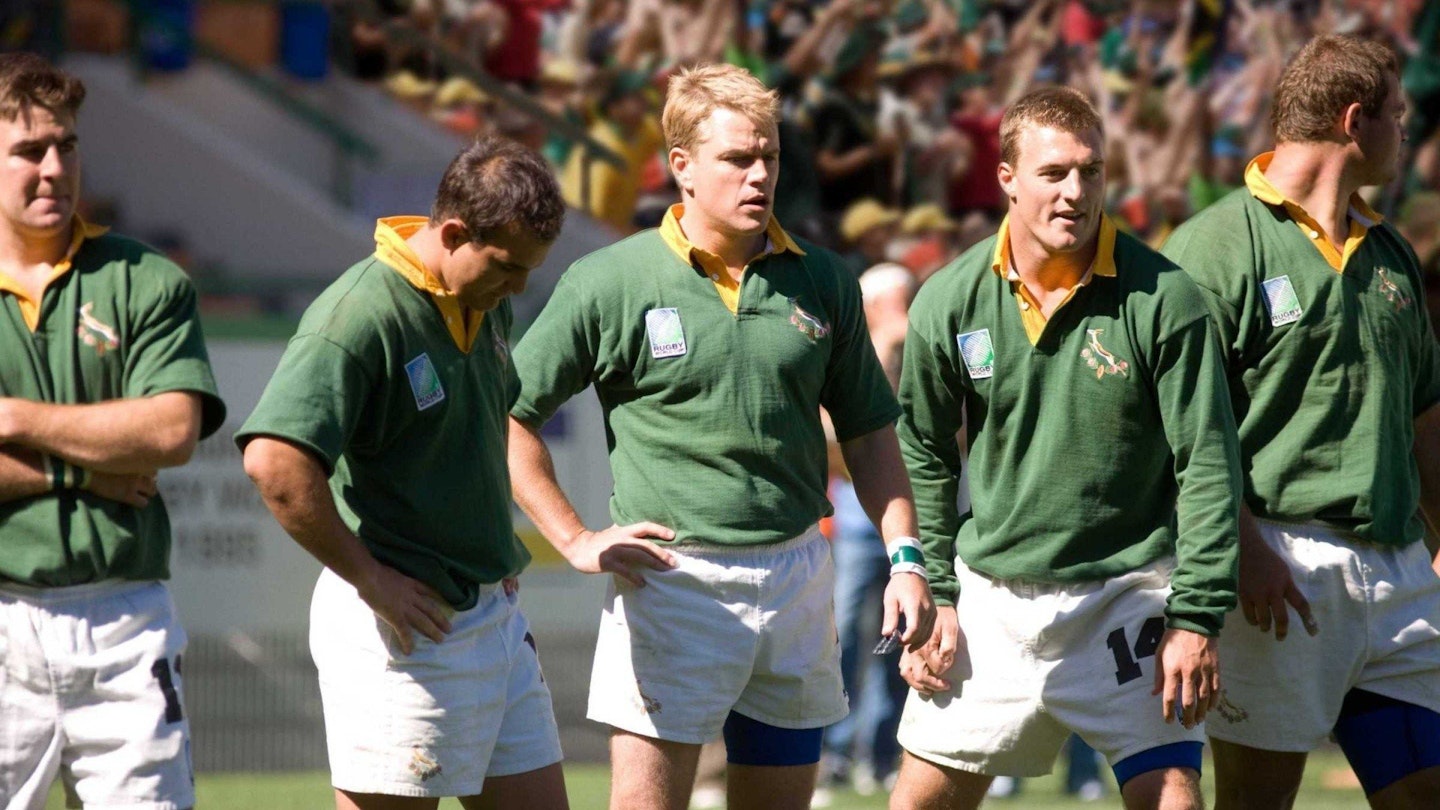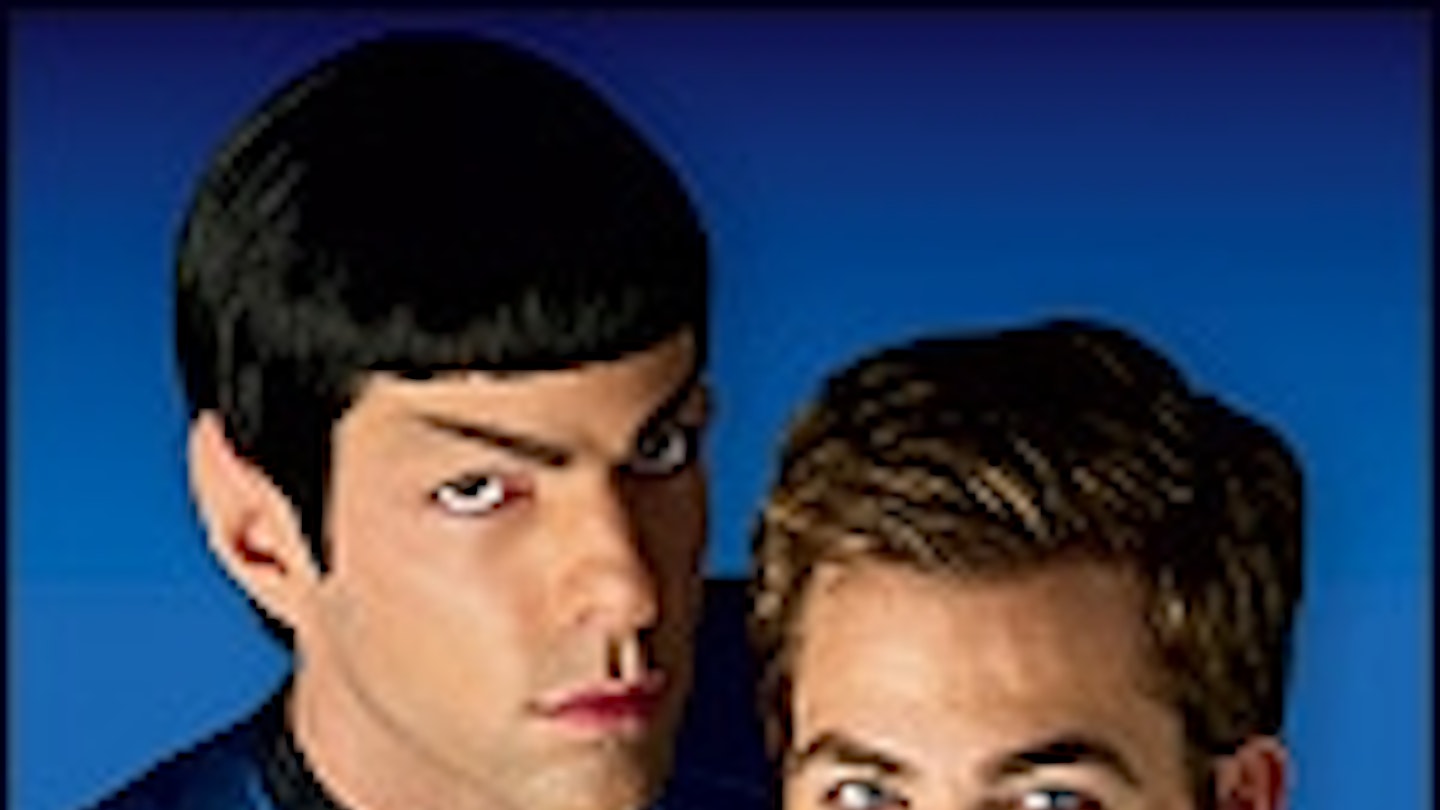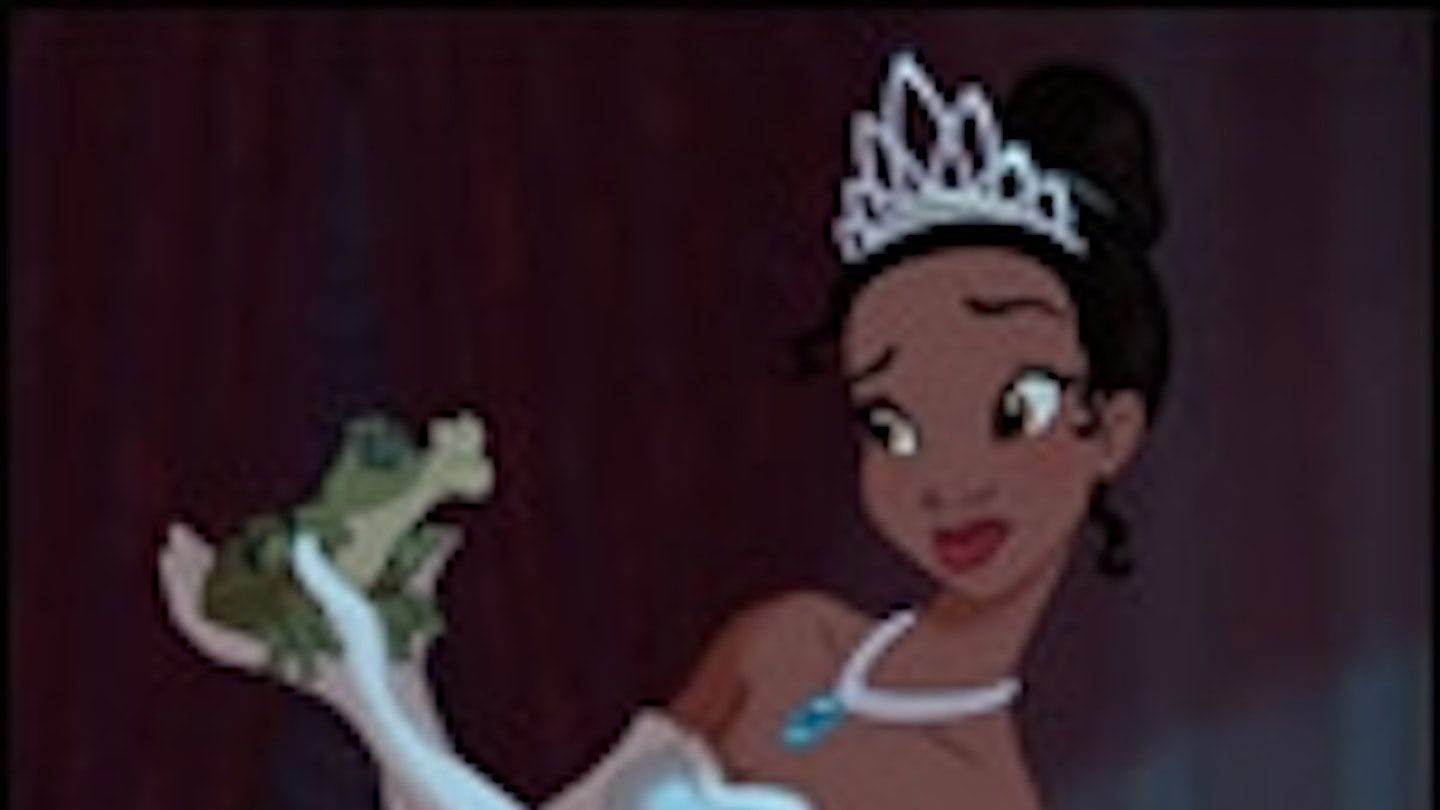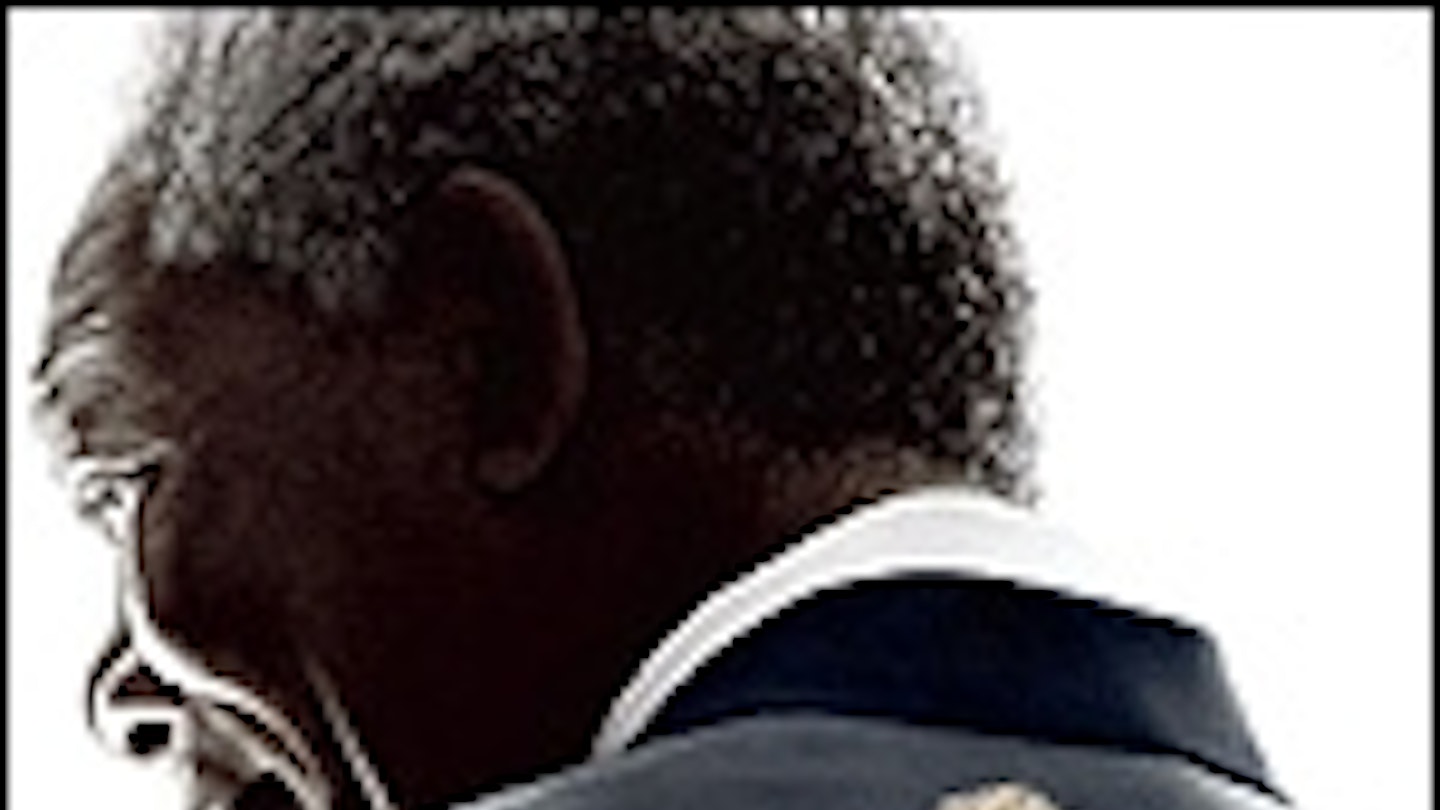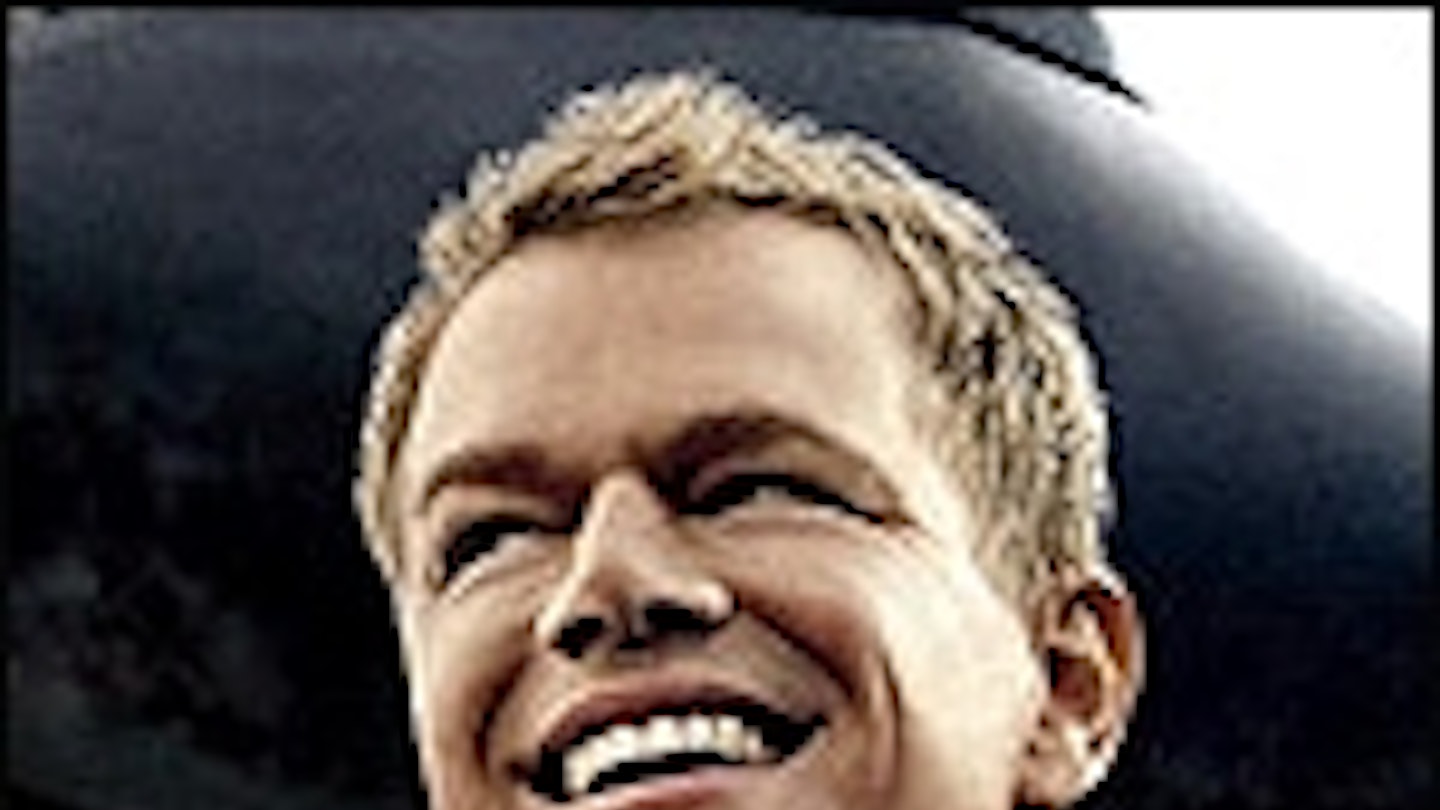On May 30, Clint Eastwood will be 80 years old. Not that it’s stopping him. Compared to the tortoise-gallop of a stripling like Ridley Scott, he’s going gangbusters on a creative run that averages two films a year, four Oscar nominations a ceremony and $143 million per film in worldwide box office. Only Pixar, Alex Ferguson and Marks & Spencer desserts can match such doggone consistency. And it’s not like he’s sticking to safe ground; throughout the big man’s magnificent autumnal years, he’s cartwheeled between themes and genres, willing, it seems, to try anything. Now comes the impressively improbable combo of Nelson Mandela’s testy first years fixing South Africa and the posh-boy mania of rugby union’s World Cup.
As you would expect, the result is noble, elegant, warm-hearted (a quality he increasingly holds dear) and dedicated to Anthony Peckham’s solidly faithful adaptation of John Carlin’s book. Eastwood is the polar opposite of a James Cameron, paring everything down to a crisp seriousness. There’s no need to show off, but nothing feels less than expert. He’s like an established author, relaxed in his talent, no longer thinking about how he writes, only what story he should tell. Invictus is mature, unfussy moviemaking on the kind of historical canvas that gives the Academy a hot flush. But, for once, there seems something slightly disengaged, a professional job rather than something as resonant as Unforgiven or Gran Torino, or as powerful as Letters From Iwo Jima or Million Dollar Baby. It doesn’t feel grand.
Morgan Freeman is 72, playing a 76 year-old Nelson Mandela. He’s been hankering after a chance to fill the soft shoes of the former inmate of Robben Island-turned-President and symbol of virtue triumphant. And when a full biopic of Mandela’s lengthy autobiography, The Long Walk To Freedom, failed to materialise, here was an interesting alternative — a passionate human drama subtly inserted into a classically styled sports movie. And given his Unforgiven/Million Dollar Baby alumnus, Eastwood was willing to direct (with Freeman as executive producer). It was time to test-drive those Eastern Cape plosives.
Channelling the statesmanlike grandeur that has enabled him to play God, US President and philosopher-pugilist Eddie Scrap-Iron Dupris, Freeman takes Mandela in his stride. He has perfected that oddly inelegant diction: soft, slow, studied and full of drafty pauses like a Yorkshireman or Ent. He has the lolloping gait, hands hanging loose at his sides — the self-aware body language that 27 years of imprisonment gives you. Caricature can rear its ugly head when chancing distinctive public figures, but Freeman does more than imitate the great man. He absorbs him, then, like Anthony Hopkins’ Nixon, pours forth an emotionally cogent version. His Mandela. You couldn’t ask for more, but the saw-it-coming fit of star and hero somehow flattens the impact.
To be fair, the film doesn’t grant him the latitude of a biopic. There are only glimpses of a mischievous charm with the ladies, the shards of a broken family and a whimsical fondness for that English delectation of afternoon tea. You hunger for something stronger: the whisky jolt of his lengthy prison years, a sense of the momentousness of his achievements, rather than this microcosm of his renowned canniness.
Wise to the slipstreams of politics, Mandela — “Madiba” to his delirious followers — made what would seem, certainly to his black heartland, an entirely counter-intuitive decision: to embrace the loathed Springbok rugby team as a symbol for the future unity of his country. Draped in Apartheid’s despised green and gold, and with only a single black player, they embodied the old guard and the bleak years of Afrikaner oppression. South Africa’s black population preferred playing soccer on the bare patches of sandy earth in the scrap-iron townships. Eastwood shoots on-location with pragmatic insistence, cheering whatever team is currently thrashing the nation’s indifferent huddle of egg-chasers.
For the far-thinking President, the real prize was, against all the odds, to win the rugby World Cup, to be held in South Africa. Here was a filmmaker’s cunning — images, the imprimatur of glorious acts, work faster and cut deeper than the churn of rhetoric. What do movies fire on, if not the intuitive power of symbols? And who more than Eastwood has revelled in the crowd-pleasing moment?
Mandela was incisive enough — and it makes the film’s smartest angle — to realise the economy, industry, police, army, all the vital organs of the nation, were still in white hands. The future needed co-operation. It’s a “human calculation” he insists, wrinkling his eyes wryly, daring any opposition. Politics needs teamwork as much as free-flowing rugby. Parallels abound. Sport is a version of life, and politics a kind of sport.
In a humorous subplot, Mandela determines to mix his stern black bodyguards with the white security detail who used to protect De Klerk. For their strutting showdowns, Eastwood lines them up, eyeballing each other across the office, as if about to scrum down.
Matt Damon is now 39 years of age and appears able to do anything. Or, at the very least, work with anyone. He can now add Eastwood to a CV that reads like a Santa list of dream directors: Spielberg, Scorsese, Coppola, Soderbergh, Minghella, Redford, Van Sant, Greengrass, Gilliam… He has fashioned that oxymoronic quality, the normal superstar, to a fine art. Whatever the role, he doesn’t intrude rather than quietly embody his character. Even so, there are De Niro-like levels of immersion going on here: in a matter of months he dropped the slack-bellied, bum-fluffed goofiness of The Informant!’s Mark Whitacre to look and sound exactly like the blond-topped, beefcake South African rugby captain. If Freeman’s Mandela is the film’s head, then Damon’s Francois Pienaar is its heart. His journey to enlightenment, a flux of quiet epiphanies and do-or-die rallying calls, comes with calm authority and a half-decent spiral pass.
Understandably, Eastwood skirts unravelling the subtleties of binding in at the scrum or the filigree variances between ruck and mall, opting to shoot rugby as a form of everysport. Although, you can feel his granite-grin at Pienaar’s blunt tactic for bringing down New Zealand’s super-human winger, Jonah Lomu, a primal collision of Usain Bolt and the Terminator: “Just hold on — help will come!” “They are a special breed of cat,” the director himself noted, applauding the lack of girlie helmet, pads and extended knickers. Keeping his camera knee-high, or at grass-level in the heated cauldron of the scrum, he gives it a familiar fervour, chopping between scrabbles of hectic play, intransient scoreboards and unconvincing crowd shots. It’s a better fit to movies than soccer’s whirligig intricacies, but anyone ignorant of the game will come out convinced it simply involves thick-bodied hulks crashing into one another while elfin on-lookers just aim to kick the ball between the posts. The great final versus the Kiwis’ invincible (and ironically nicknamed) All Blacks, where Mandela’s dream is met with a dramatic last-gasp triumph, was in truth a tight, ingloriously defensive saga without a try to its name. Not that that stops Eastwood wringing every inspirational sentiment he can out of it.
